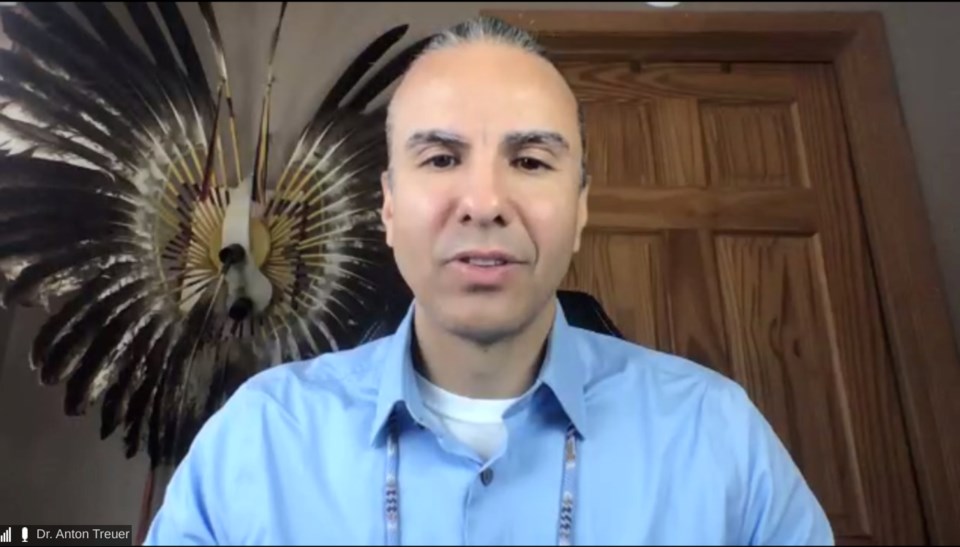Lakehead University is rolling out a 10-year plan to promote and revitalize the use of Indigenous languages. The move follows the United Nations designating 2022-2032 as the Decade of Indigenous Languages.
With Indigenous language loss prevalent across Canada, Lakehead aims to uphold the Los Pinos Declaration, a decade-long road map which arose out of meetings with more than 500 representatives from 50 countries seeking to improve Indigenous language education and keep Indigenous languages from going extinct.
At a virtual announcement earlier this week, Lakehead discussed its plans to promote the learning and use of Indigenous languages with Indigenous academics and people from its Orillia and Thunder Bay campus communities.
“At Lakehead University, we are excited to respond to the Los Pinos declaration on the decade of Indigenous languages,” said Dr. Moira McPherson, Lakehead University’s President and Vice-Chancellor.
“We have one of the longest running Indigenous language programs in Canada, (and) we are looking forward to building and expanding on this program through our decade of Indigenous language plan.”
Lakehead currently teaches three Indigenous languages, including Oji-Cree, Cree, and four dialects of Ojibwe, and it has run the Indigenous Language Instructor’s Program - a diploma program for teaching Indigenous languages - since 1973.
Though many of the concrete details of the university’s plan have yet to be unveiled, Vicki Monague, Lakehead graduate student and founding member of the United Nations Decade of Indigenous Languages, said initiatives could include Indigenous language immersion spaces.
“What we want to do is continue to create immersion spaces (where) Indigenous languages can be spoken, and (incorporate) different things like signage and ensuring that our languages are included everywhere on our campuses,” she said.
“The Indigenous languages initiatives will seek to increase indigenous language fluency levels in and around our campuses and partner communities within 10 years.”
Lorraine McRae, head councillor with The Chippewas of Rama First Nation, emphasized the importance of Indigenous peoples revitalizing their languages, and said that her own First Nation has been working hard to revitalize their language.
“Our elders remind us that the spirit of our people is in the language,” she said. “What we can give to our children today is to pass on all of those things that were taken from us.
"We must begin speaking our language today and passing that on to our future generations," she said.
“We're presently working in a more intentional way these days with language reclamation and preservation throughout our community and in our workplace,” she said. “It's our hope that soon we'll be in a position to open an immersion daycare centre for children ages two to six.
“Our communities, I think, are more ready now than in the past to take on the responsibility of maintaining and revitalizing our languages.”
Wednesday’s virtual announcement was accompanied by a presentation from Dr. Anton Treuer, Indigenous academic and author who has done considerable work to revitalize the Ojibwe language.
“Lakehead was an early leader in some of our Indigenous language revitalization efforts, especially at the collegiate level,” he said.
Treuer said that Indigenous languages are core to the worldview and identity of Indigenous peoples, and that reclaiming the languages are as much about social justice as they are language.
“Language embodies our unique worldview, but it's also so central to our identity and to our unique way of looking at the world and solving problems,” he said.
“This is something that is not just an act of charity for Indigenous people who have suffered victimization – it is something that will help us all be liberated from the oppressions that have plagued humans for thousands of years.”



